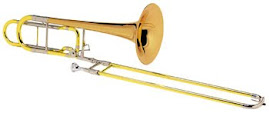Sunday, August 19, 2012
Concentration during performances
Dr. Noa Kageyama
All performances are not created equal
We might say that all performances are important, but we all know that our brain considers some to be more important than others.
So naturally, when we find ourselves in an easy, low-pressure performance, we tend to relax and “cruise” a bit. With so little at stake, it’s easy to let our mind wander and perform on autopilot.
Funnily enough, we often end up playing pretty darn well this way. We feel a sense of ease and freedom, and start wishing we could play like that in a big audition or performance.
Of course, we all know it just doesn’t work that way. Under pressure, our minds gladly fill themselves up with worries, doubts, criticism, analysis, and other paralyzing thoughts.
So if you get into the habit of putting your mind on cruise control in easy performances, you end up being ill prepared to combat the inevitable negative thoughts when the pressure is on. For one, you won’t know what to replace your negative thoughts with, and two, you won’t have much experience staying focused on the right things for very long.
What are we supposed to think about anyway?
When asked what they are thinking about during their best performances, great performers will often say “nothing.” But when pressed to provide an answer, they will admit that this is not exactly true. Their minds aren’t completely blank. They’re not daydreaming. They’re not thinking about the gastrointestinal consequences of the 7-bean salad they had for lunch or wondering who will get killed off on the next episode of Game of Thrones. They’re intensely focused on the present moment (on sound, for instance).
But if we have developed the habit of zoning out and going on autopilot in low-pressure situations, we may have a difficult time flipping the switch and focusing deeply enough to max out our limited attentional capacity when there’s more at stake.
Keep your eye on the ball
When I took tennis lessons as a kid, I was told to keep my eyes on the ball. I thought this was pretty obvious advice. I mean, of course I was going to watch the ball – how else was I supposed to hit it?
It wasn’t until many years later that I understood what this meant. One day, my teacher drew a red X on the ball and told me to focus all my attention on the X. To see if I could see the X as the ball left his racket, spun over the net, and dropped into my court. That was keeping my eye on the ball.
This took “keeping an eye on the ball” to a whole new level. As you can imagine, it’s tough to think about much else when you’re busy watching the ball this intently. You can’t simultaneously make dinner plans, or think about whether you’re going to win the match or not. You’re too busy playing tennis, completely immersed in the moment.
Take action
Sure, you can develop this intensity of focus in the practice room, but your focus will be even more bulletproof if you hone this skill in live performances situations. Make it a habit to use those less stressful performances as an ideal opportunity to practice turning the intensity of your focus up to 11, and you’ll thank yourself for it when the big performances arrive.
Monday, May 14, 2012
Sunday, April 15, 2012
Thursday, February 2, 2012
Sunday, January 22, 2012
Mistakes ...

If an engineer makes a mistake,
It is a new venture!
If a scientist makes a mistake,
It is a new invention!
If an explorer makes a mistake,
It's a new discovery!
If a driver makes a mistake,
It is an accident!
If a politician makes a mistake,
It is a new law!
If a professor makes a mistake,
It is a new theory!
If a hairstylist makes a mistake,
It's a new style!
If a tailor makes a mistake,
It is a new fashion!
If parents make a mistake,
It is a new generation!
If the boss makes a mistake,
It is our mistake!
If an employee makes a mistake,
Now, *that* is a "MISTAKE!"
Subscribe to:
Comments (Atom)















